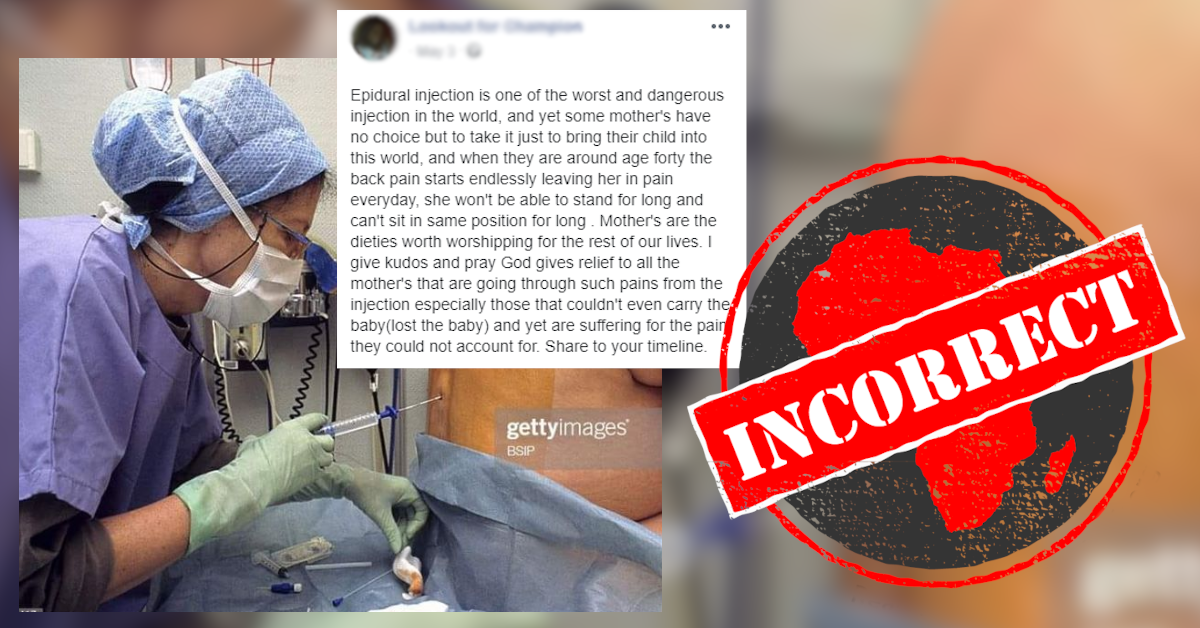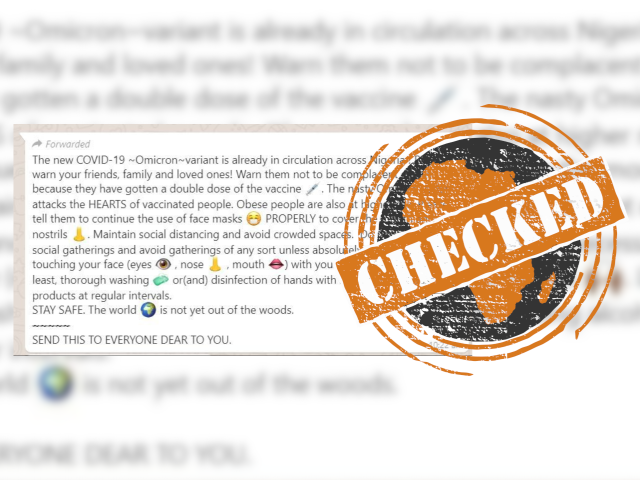“Epidural injection is one of the worst and dangerous injection in the world,” claims a post on Facebook.
“Yet some mother's have no choice but to take it just to bring their child into this world, and when they are around age forty the back pain starts endlessly.”
It shows a woman being given an injection in her back, and has been shared more than 5,300 times.
Do women who get an epidural injection to relieve the pain of childbirth suffer from terrible back pain when they reach their 40s?
We investigated.

An epidural injection is a painkiller or anaesthetic that gives temporary pain relief. It is usually injected in the area around the spinal cord of the patient.
Epidural injections are commonly used to relieve labour pain.
While many people link back pain after childbirth with epidural injections, a 2019 study suggests that it is a misconception.
The study tested over 200 women and found that “the correlation between postpartum back pain and the type of anaesthesia was not statistically significant”.
More tests were performed on the same group of women six months later and again the results indicated that there was no significant link between back pain and the epidural injection.
In an article published by the American Society of Anesthesiologists, Paloma Toledo responds to a common myth about epidurals causing back pain. Toleda is an obstetric physician and assistant professor of anaesthesiology at Northwestern University’s medical school in Chicago.
Toledo said: “Serious complications from an epidural, including paralysis, are extremely rare. Some women have discomfort in the lower back for a few hours or days after the epidural, but it doesn’t last.”
That epidural injections cause future back pain is not supported by scientific research. Any back pain after an epidural is only temporary. – Butchie Seroto
“Yet some mother's have no choice but to take it just to bring their child into this world, and when they are around age forty the back pain starts endlessly.”
It shows a woman being given an injection in her back, and has been shared more than 5,300 times.
Do women who get an epidural injection to relieve the pain of childbirth suffer from terrible back pain when they reach their 40s?
We investigated.

What is an epidural injection?
An epidural injection is a painkiller or anaesthetic that gives temporary pain relief. It is usually injected in the area around the spinal cord of the patient.
Epidural injections are commonly used to relieve labour pain.
No link between back pain and epidural
While many people link back pain after childbirth with epidural injections, a 2019 study suggests that it is a misconception.
The study tested over 200 women and found that “the correlation between postpartum back pain and the type of anaesthesia was not statistically significant”.
More tests were performed on the same group of women six months later and again the results indicated that there was no significant link between back pain and the epidural injection.
Serious complications from epidurals extremely rare
In an article published by the American Society of Anesthesiologists, Paloma Toledo responds to a common myth about epidurals causing back pain. Toleda is an obstetric physician and assistant professor of anaesthesiology at Northwestern University’s medical school in Chicago.
Toledo said: “Serious complications from an epidural, including paralysis, are extremely rare. Some women have discomfort in the lower back for a few hours or days after the epidural, but it doesn’t last.”
That epidural injections cause future back pain is not supported by scientific research. Any back pain after an epidural is only temporary. – Butchie Seroto
Republish our content for free
For publishers: what to do if your post is rated false
A fact-checker has rated your Facebook or Instagram post as “false”, “altered”, “partly false” or “missing context”. This could have serious consequences. What do you do?
Click on our guide for the steps you should follow.
Publishers guideAfrica Check teams up with Facebook
Africa Check is a partner in Meta's third-party fact-checking programme to help stop the spread of false information on social media.
The content we rate as “false” will be downgraded on Facebook and Instagram. This means fewer people will see it.
You can also help identify false information on Facebook. This guide explains how.





Add new comment